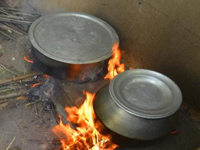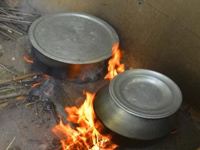A vision for clean cooking access for all
Nearly one in three people, the vast majority of them in the poorest regions of the world, still lack access to clean cooking facilities, with major ramifications for public health, local environments
Nearly one in three people, the vast majority of them in the poorest regions of the world, still lack access to clean cooking facilities, with major ramifications for public health, local environments
ClimateCare is pleased to announce it has extended its partnership with stove manufacturer, Burn Manufacturing to widen access to affordable, energy efficient cooking stoves in Kenya. The programme uses
This briefing paper reports on the largest energy access survey ever conducted in India, covering a representative sample of the rural poor across six states with interviews in 8,566 households. It adapts

KOCHI: According to the Annual Work Plan and Budget 2017-18, only 26.6% of the schools serving midday-meals in government and aided institutions are cooking meals using LPG cylinders while the remaining

मेरठ : एक साल के अंदर मेरठ जनपद में एक लाख चार हजार लोगों को चूल्हे के धुएं से निजात मिली है। प्रधानमंत्री उज्जवला गैस योजना के अंतर्गत मेरठ में 52,940 उपभोक्ताओं को रसोई गैस कनेक्शन दिए गए। योजना के एक
Women’s Earth Alliance (WEA) have revealed that over 93,000 persons in the country, particularly women, die every year due to smoke inhalation, while cooking with firewood. The Women’s Initiative for
<p><img alt="" src="http://cdn.downtoearth.org.in/library/medium/2017-03-22/0.71052900_1490191547_africa-power.jpg" style="width: 320px; height: 213px; margin: 14px; float: left;" />This third edition
Free distribution of a technology can be an effective development policy instrument if its adoption is socially inefficient and hampered by affordability constraints. Improved cookstoves may be such a
Greening the wood energy sector holds a vast potential for reducing global greenhouse gas emissions and improving rural livelihoods, FAO said on the occasion of the UN's International Day of Forests.
The paper discusses challenges in analyzing the costs of household cooking methods (fuels and associated stove technologies) in lower-income countries, and sources of divergence between observed and true
<p>Approximately 95% of households in Mozambique burn solid fuels for cooking, contributing to elevated indoor and outdoor fine particulate matter (PM2.5) concentrations and subsequent health and climate